MS-LS2-2
Construct an explanation that predicts patterns of interactions among organisms across multiple ecosystems.
-
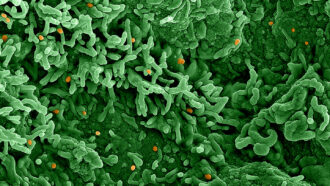 Health & Medicine
Health & MedicineExplainer: What is mpox (formerly monkeypox)?
Once rare, the viral disease monkeypox exploded onto the global scene for the first time in 2022.
By Tina Hesman Saey and Janet Raloff -
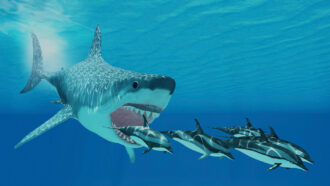 Fossils
FossilsGreat white sharks may be partly to blame for the end of megalodons
Zinc levels in shark teeth hint that megalodons and great whites competed for food — and great whites won.
-
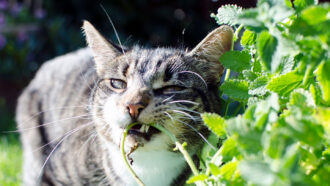 Plants
PlantsCatnip’s insect-repelling powers grow as Puss chews on it
Damaging the leaves boosts the plant’s chemical defenses — and their appeal to cats.
By Anil Oza -
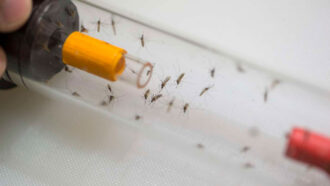 Animals
AnimalsSleepy mosquitoes prefer dozing over dining
Mosquitoes repeatedly shaken to prevent slumber lagged behind well-rested ones when offered a leg to feed on.
By Anna Gibbs -
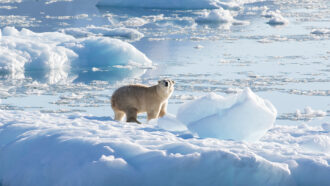 Animals
AnimalsSome Greenland polar bears are surviving with very little sea ice
The ‘glacial mélange’ on which they’ve come to rely — a mix of ice, snow and slush — could be a temporary refuge for some polar bears.
By Nikk Ogasa -
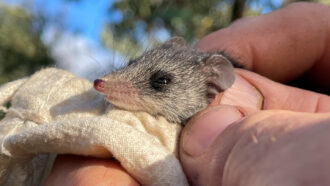 Animals
AnimalsPalm-size marsupials may face extinction from wild ‘house’ cats
After surviving Australian bushfires, the Kangaroo Island dunnart is losing ground as it's targeted by hungry predators.
By Asa Stahl -
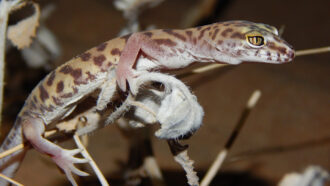 Animals
AnimalsWatch how a western banded gecko takes down a scorpion
New high-speed video reveals how normally mild-mannered geckos can violently shake venomous prey into submission.
-
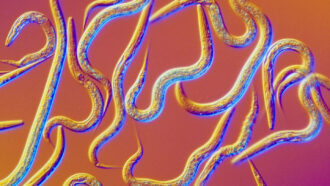 Health & Medicine
Health & MedicineLike bloodhounds, worms are sniffing out human cancers
Scents emitted by diseased cells may usher in a new era of safe, low-cost screening tests for cancer and other illnesses.
-
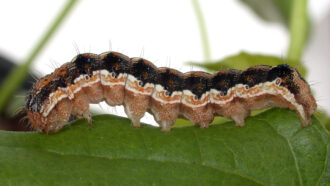 Animals
AnimalsInfected caterpillars become zombies that climb to their deaths
By tampering with genes involved in vision, a virus can send caterpillars on a doomed quest for sunlight.
By Jake Buehler -
 Environment
EnvironmentPonds made to control floods can spew climate-warming gases, study finds
Younger stormwater ponds can release more carbon in gases than they absorb, a study finds. That could aggravate global warming.
-
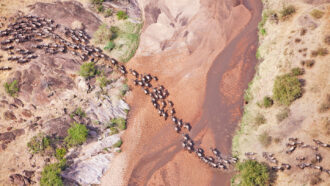 Animals
AnimalsScientists Say: Migration
Migration involves the movement of animals or people from one place to another.
-
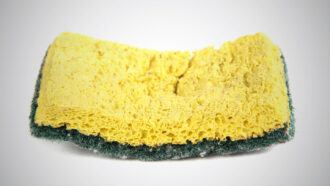 Microbes
MicrobesKitchen sponges are bacteria’s dream home
Sponges are favorite spots for bacteria, partly because of the mixed-housing environment that the cleaner-uppers offer microbes.
By Anna Gibbs